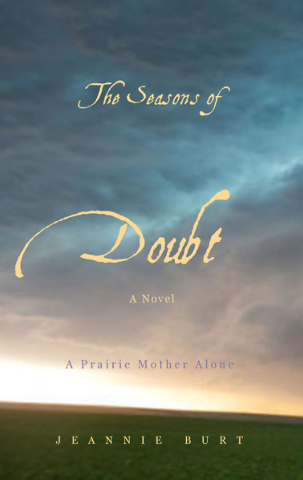
In 1873, quiet Mary Harrington’s husband, drunk and violent, leaves their remote Nebraska homestead. She and her five-year-old child wait for him to return. Three months later, he is still gone and they are starving.
They have no choice but to ride out into the frigid Nebraska winter, searching for help. They stumble into a struggling community of only a handful of people. Mary squats in an abandoned building and begs for work at the Emigrant rooming house. Weeks go by; they have no food but that which Mary can steal from slop buckets and the unguarded rooming house cellar. A cook’s job comes available. Mary can do it, but the law won’t allow her to be paid without her husband’s approval. So, in exchange for Mary’s labor, the rooming house proprietor offers only bowls of food.
Barely surviving, they continue to hope for Mary’s husband to return. Some time later, he passes through, now a drover of longhorns. She approaches him, but he raises his whip at her, and spits, and turns away. She realizes, then, she can rely on no one but herself. Alone, she must find a way to survive, and care for her child. But how? Mary will prove herself an intrepid mother and a woman of courage.
Written in the rich and elegant tone of Willa Cather, The Seasons of Doubt describes the hardscrabble life and courage of a prairie mother to survive and raise her child, during times that were often unkind to women.
“’Women’s rights’ is an oxymoron in 1873 Nebraska, where a married woman cannot work for wages or sell her own property without spousal approval.” –Booklist